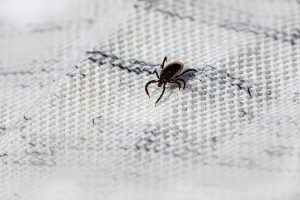
Owners have several worries when it comes to owning a pet, however one of the major problems we encounter would be the presence of parasites.
It is true that some parasites which infest dogs can also affect humans, and vice versa. These may be accompanied by diseases of varying infectiousness. These pathologies are known as zoonotic diseases and can be prevented if we keep the dogs dewormed adequately.
Fleas, ticks, and lice are parasites that can easily be transferred from a dog’s skin to ours. They are carriers of serious diseases such as Lyme disease but can also pass on other parasites such as worms. The eggs of these parasites are ingested or inhaled, and they are majorly responsible for gastrointestinal disorders. The most common are nematodes, tapeworms, and trematodes. The transmission of intestinal parasites from dogs to humans can occur in different ways. Commonly, dogs interact with infected feces and lick our hands, transferring the parasites to our mouths. Children are especially vulnerable and need extra care. Prevention is key to protecting them.
Internal parasites also merit a special mention due to their potential lethality. Transmitted through mosquitoes, it is the cause of filariasis in dogs. In this case, the dog does not directly contract the disease, but serves as a vector for the parasite. The mosquito can bite an infected dog and transport the parasite to other animals or humans when they feed again. This parasite is also transmitted by the bite of an infected flying insect. In this case, the dog is not directly infecting humans. The symptoms of leishmaniasis vary depending on the type of leishmaniasis. Cutaneous leishmaniasis usually produces ulcers on the skin, while visceral leishmaniasis affects vital organs such as the liver or kidney. Internal and external deworming is the key to preventing infestations by parasites.
It is advisable to consult your veterinarian for the best anti-parasitic product available in your region and follow their instructions for administering the product and frequency of doses. Deworming a dog on a monthly basis can help to protect them from the most common parasites. In addition to this, good hygiene practices such as washing your hands and keeping the dog clean are important. It is also advisable to avoid walking during times of high mosquito activity, and to follow their vaccination schedule correctly.
Remember, a daily visit to the vet will not only protect and ensure your dog’s well-being, but yours as well.
 wagwagtail "only love can make your dog wag her tail"
wagwagtail "only love can make your dog wag her tail"
